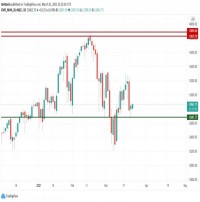|
Opalesque Industry Update - The Bank for International Settlements (BIS) and four central banks have completed a successful pilot of the use of central bank digital currencies (CBDCs) by commercial banks for real-value transactions across borders, as part of Project mBridge.
The BIS Innovation Hub Hong Kong Centre joined forces with the Hong Kong Monetary Authority, the Bank of Thailand, the Digital Currency Institute of the People's Bank of China and the Central Bank of the United Arab Emirates. As detailed in a new report [link], 20 banks in the four jurisdictions used the mBridge platform to conduct 164 payment and foreign exchange transactions totalling over $22 million over six weeks, settled directly on the platform. Project mBridge envisions an efficient, low-cost, regulatory-compliant and scalable cross-border payment solution with CBDC at its core. The experiment was designed to operate across different jurisdictions and currencies, to explore the capabilities of distributed ledger technology and the application of CBDC in cross-border payments between commercial banks. The project is part of the ongoing efforts to experiment with new technologies to deliver faster, cheaper and safer cross-border payments and settlements, a priority identified by the G20. Many jurisdictions, in particular emerging and developing economies, are losing access to the international network of correspondent banking services, leaving many households and firms without sufficient or affordable access to the global financial system for payments. By enabling peer-to-peer and instant exchange of multiple CBDCs on a single network, Project mBridge aims to solve long-standing inefficiencies in cross-border payments and foster greater financial inclusion and innovation in international payments. "Financial exclusion is not just a problem for individuals; it is also affecting economies," says Cecilia Skingsley, Head of the BIS Innovation Hub. "This project makes important strides towards developing a platform that has the potential to foster more inclusive and efficient payments systems that will benefit those making and receiving payments in different currencies and jurisdictions as well as the overall functioning of the global financial system." The BIS will continue to work on this and similar projects to explore the user requirements, technical specifications, and governance framework needed for interoperable CBDCs. The mBridge project team will continue building the technology and testing it with a view to producing a product with enough features to be used by early adopters in the year ahead and a production-ready system thereafter. The results of the pilot are to be presented at Hong Kong Fintech week [link], running from 31 October to 4 November, along with two other Hong Kong Centre projects: · Project Aurum, conducted with the Hong Kong Monetary Authority and the Applied Science and Technology Research Institute, created a prototype technology stack comprised of a wholesale interbank system and a retail e-wallet system. The system brings to life two different types of retail tokens: intermediated CBDC and CBDC-backed stablecoins. The latter is unique in the study of CBDC to date, backing the stablecoin with CBDC held in the interbank wholesale system. The source code is being made available in the BIS Open Tech platform, thus accessible to central banks exploring the best possible architecture for a retail CBDC. · Project Genesis 2.0 demonstrates the technical feasibility of tokenised green bonds associated with so-called carbon forwards, or mitigation outcome interests. These are digitally tracked and automatically delivered to investors, as explained in a report [link]. Genesis 2.0 is a collaboration between the BIS Innovation Hub's Hong Kong Centre, the Hong Kong Monetary Authority, the UN Climate Change Global Innovation Hub and private sector partners.
|
Industry Updates
BIS and four central banks complete successful pilot of real-value transactions on cross-border CBDC platform
Wednesday, October 26, 2022
|
|





 RSS
RSS








